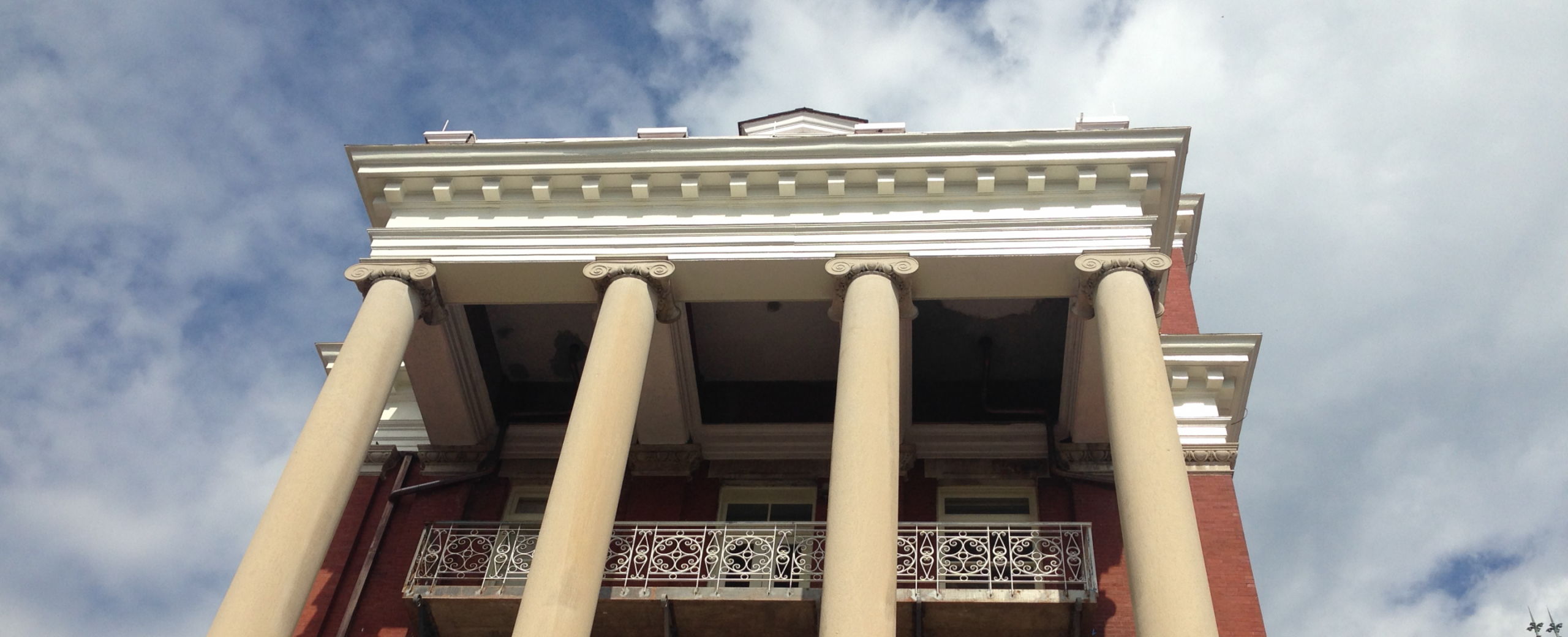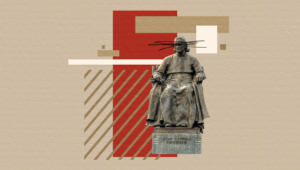A group of descendants of the 272 slaves sold by Georgetown University in 1838 to keep the university afloat have renewed their calls asking for monetary reparations from the school.
Georgia Goslee, the representative for GU272 Isaac Hawkins Legacy Group, an organization representing the descendants related to Isaac Hawkins, the slave whose name was the first on the list to be sold to finance the university, said the steps taken by the university to address the school’s history are not enough.
“The descendants simply ask for a reasonable fund for the unpaid labor of their enslaved ancestors, the restoration of a lost inheritance” she wrote in an email to the Voice. “They have asked for something tangible to help them deal with those needs that arise from their connection to Georgetown’s involvement in the slave trade. The Isaac Hawkins descendants certainly don’t think that’s too much to ask.”
In 1838, 272 slaves were sold by Georgetown and sent to Louisiana in order to pull the school out of debt.
A university spokesperson wrote in an email to the Voice that Georgetown has been working for the past three years to address it’s slaveholding past and will continue to do so. Such forms include apologies to the descendants,the renaming of two buildings on campus for descendants, and the establishment of a Working Group on Slavery, Memory, and Reconciliation. Additionally, Georgetown offers descendants legacy status for admission applications.
“Georgetown and the Jesuits are committed to working with Descendants in a process that recognizes the terrible legacy of slavery and promotes racial justice in southern Louisiana, southern Maryland and throughout the nation,” wrote the spokesperson. “We believe that this kind of collaborative, forward-looking approach is the best path toward reconciliation.”
While Georgetown’s new policies are applauded by some, many descendants and activists are still not satisfied with what has been offered by the university. Goslee acknowledged the university’s work, but emphasized the importance that the descendants receive monetary reparations.
“While much appreciated, symbolic gestures like a formal apology or the renaming of buildings do not leave descendants materially better off, as the slaves did GU,” she wrote. “Such measures are necessary components of making amends, but they are woefully insufficient.”
She wrote that giving legacy status during admissions was a “unilateral decision” by the university that only benefits a subset of qualified descendants.
“Offering descendants the same consideration in admissions that it gives members of the Georgetown community could benefit those descendants who qualify, but would exclude many like the elderly, those without a high school degree, or those not seeking higher education, wrote Goslee. “Dee Taylor, the 70 year old descendant from Baton Rouge, Louisiana certainly would not benefit from this measure. She longs for economic dignity after listening to these words from the Jesuits and GU.”
Award-winning actor Danny Glover, who is not a descendant, recently appeared in a video published by GU272 Isaac Hawkins Legacy Group on Jan. 15 in support of monetary reparations.
“One of the darkest and morally reprehensible stories of American slavery is the direct involvement of the Catholic Church and Georgetown University in slave trading,” said Glover. “What does Georgetown and the Jesuits owe the descendants? I say much, much more than what they offered thus far…180 years is long enough to get justice.
In a Jan. 12, 2018 university-wide letter, university President John DeGioia updated the student body on the university’s efforts to reach out to the descendants, but did not address reparations. Such forms of trying to understand Georgetown’s history is through the newly-created Center for the Study of Slavery and Its Legacies as well as the creation and expansion of the Georgetown Slavery Archive. Additionally, DeGioia met with several of the descendants in July 2016.
Goslee wrote that she thought Georgetown’s Center for the Study of Slavery and Its Legacies is not good enough from the university.
“This academic initiative should be considered a preexisting part of any modern American university’s research and teaching mission, not as an act of reparation. It simply means that university resources flow from one line to another within the university,” wrote Goslee. “Further, studying slavery does not restore any lost inheritances to their (morally speaking) rightful owners. The annals of history are replete with studies, studies that do not leave the descendants better off as the slaves did GU.”
Listening, wrote Goslee, is also a crucial part in the process of making amends.
“Walk in our shoes as an African American in 2018 or historically. Walk in the shoes and feel the pain and look throughout the African American community,” Goslee said in a New York Times Facebook Live video when asked why the descendants still wish to obtain monetary reparations several hundred years later. “When you experience and feel the pain of your ancestors, it is much different. It is not something that you just ‘get over with’: we live with this every single day.”






